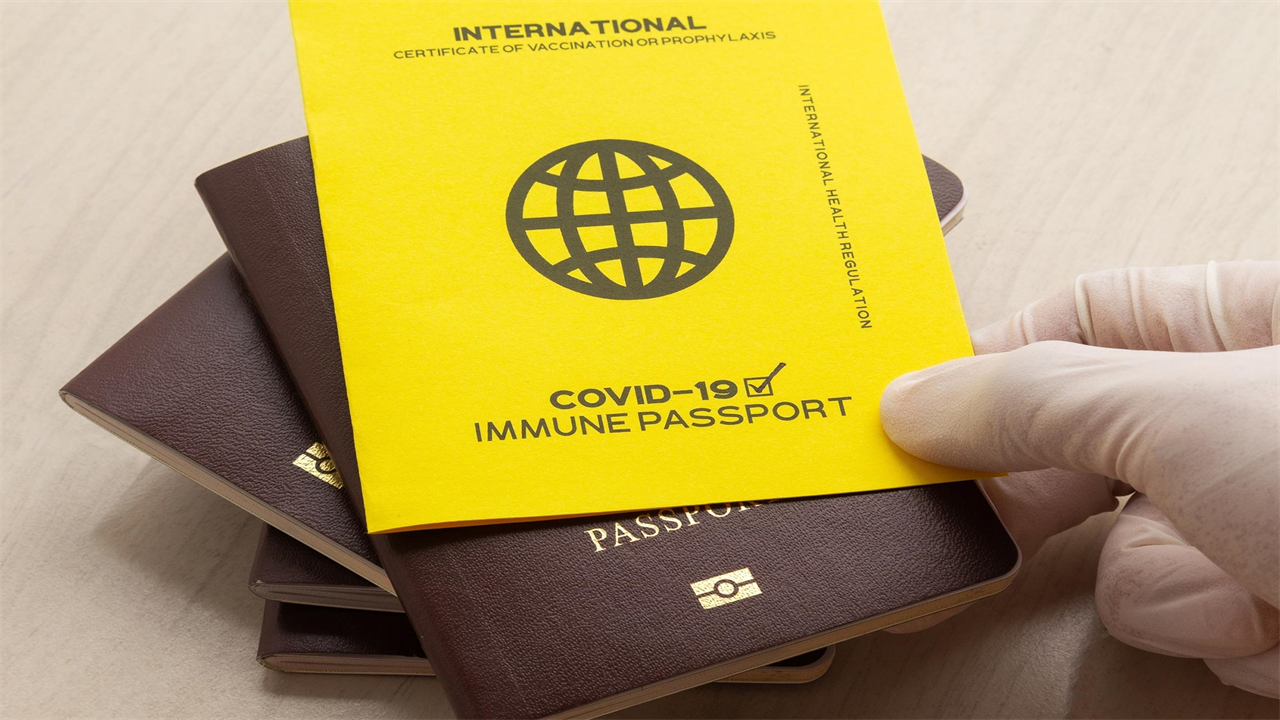A Threat to Civil Freedoms and Rights or the Best Way To Prevent Another Lockdown?
0 View
Share this Video
- Publish Date:
- 3 November, 2021
- Category:
- Covid
- Video License
- Standard License
- Imported From:
- Youtube
Tags

Experts argue that COVID passes could stop another lockdown or pose threats like segregation and ongoing surveillance.
Covid passes and vaccine passports could promise the ideal solution to prevent further lockdowns in the UK or threaten people’s freedoms and right to privacy, experts argue in a debate published today (November 3, 2021) by The BMJ .
Experts whose institutions have researched the impact of using such tools to prevent the spread of the coronavirus disagree on whether they are a valid alternative to lockdown.
In the debate, the authors distinguish between a ‘vaccine passport’, a document or app that only shows the vaccination status; and a “covid pass,” a document or app that shows that a person has either a lower risk covid status based on their vaccination record, a recent negative lateral flow or PCR test, or a positive antibody test showing that they had the infection before and have some degree of immunity.
Researchers at the Tony Blair Institute for Global Change in London say covid passes are a useful tool to enable people to prove that they have either been fully vaccinated against the coronavirus, have immunity against a previous infection or have recently tested negative for the virus. COVID-19 .
Asking people to prove their health status before entering a crowded or enclosed environment could potentially reduce the risk of spreading Covid.
Kirsty Innes and Daniel Sleat of the Institute highlight the pilot of the government’s events research program, which had sparked optimism that tools like a Covid pass would help limit transmission at mass events.
In the first phase of that program, only 28 cases of Covid-19 had been detected in 7,764 participants who met the full testing requirements.
The Institute conducted an analysis based on a model of the spread of the virus in June 2021, created by researchers from Imperial College London for the British Emergency Scientific Advisory Group (SAGE).
This found that if the government had chosen to make covid passes mandatory for busy indoor and mass attendances in England after the lifting of the latest restrictions on July 19, it could have reduced the number of cases and deaths by as much as 30%. .
They recognize that safeguards are needed before adopting widespread use of covid passes, such as ensuring that people who cannot receive covid vaccination are not “justifiably excluded”. , and protecting personal health data and maximizing privacy.
They say: “In the context of increasing cases or, worse, a new and more dangerous variant, a covid pass is the best mechanism we have to address restrictions and avoid the need for another hard lockdown. Ultimately, faced with further spikes, we are either forcing everyone to stay home, or requiring only those with the virus to do so.”
Imogen Parker, associate director at Ada Lovelace Institute, London, and policy officer at Center for Science and Policy, University of Cambridge, argues against covid passes.
Like more traditional public health measures like wearing masks or social distancing, passports can reduce risk but not guarantee safety, she believes. Communicating vaccination or testing status provides some information about risks, but it does not prove that people are free or safe from the virus.
Parker cites the experience in August this year at the open-air Boardmasters Festival in Cornwall, which involved vaccine passports with additional testing, but it still became a “super-dissemination” event, incubating nearly 5,000 cases.
The Ada Lovelace Institute’s own research on this issue did not rule out passports as a valid tool to aid the transition from lockdowns, but called for transparent scientific foundations such as models on their effects on public health compared to other tools and engineering design standards. with clear, specific and limited purposes.
Parker warns that unlike masks or distancing, passports introduce “major risks” into society, such as the risk of segregation or introducing barriers to economic and social participation, as some people may not want or be unable to be vaccinated.
In addition, normalizing third-party policing over the status of individuals could add additional barriers to ethnic minority people, who have already faced “overpolicing,” she argues, or those with insecure citizenships.
There was also a risk of creating “sustainable surveillance technology,” as she explains, “Technology justified for emergencies has a habit of normalizing.”
Digital tools make it easy to share data, which can benefit health research, but it may also be possible to share personal information with, for example, police or insurance companies, she adds.
“In order to create the technical, operational, legal and policy infrastructure that would be needed, policymakers would have to pause to calculate whether this is a justifiable health measure or whether investment in passports could prove to be a technological distraction…from the best mechanism in place for us. available to reopen societies safely and equitably: global vaccination,” she concludes.
Reference: “Are vaccine passports and covid passes a valid alternative to lockdown?” November 3, 2021, The BMJ.
DOI: 10.1136/bmj.n2571










